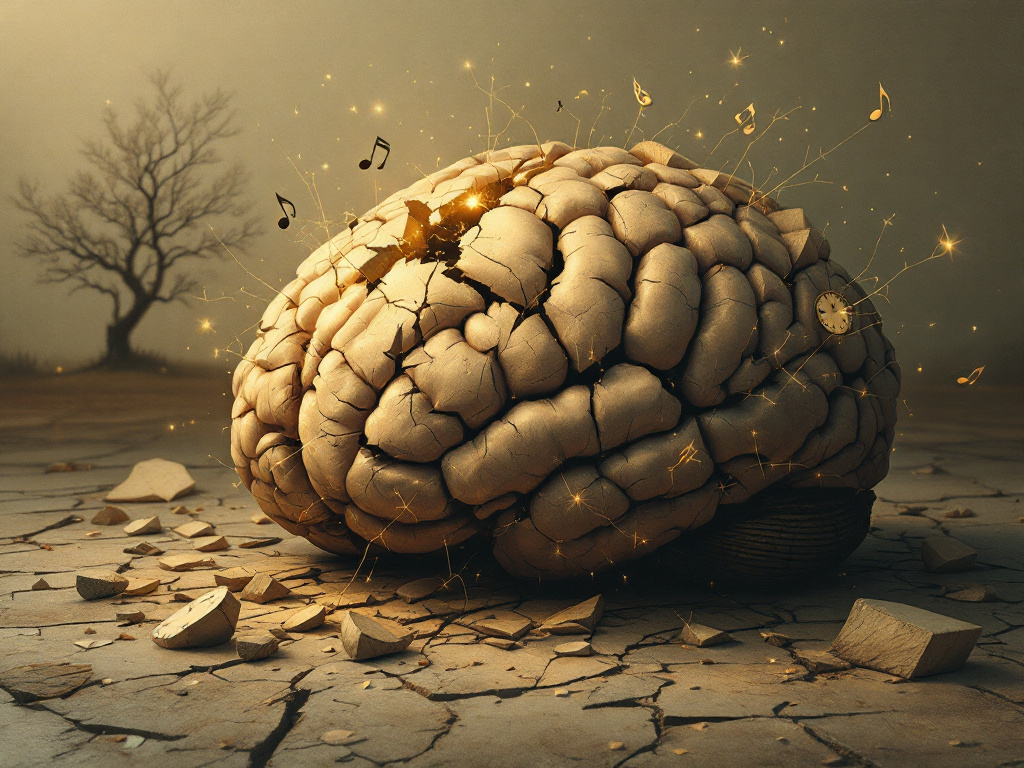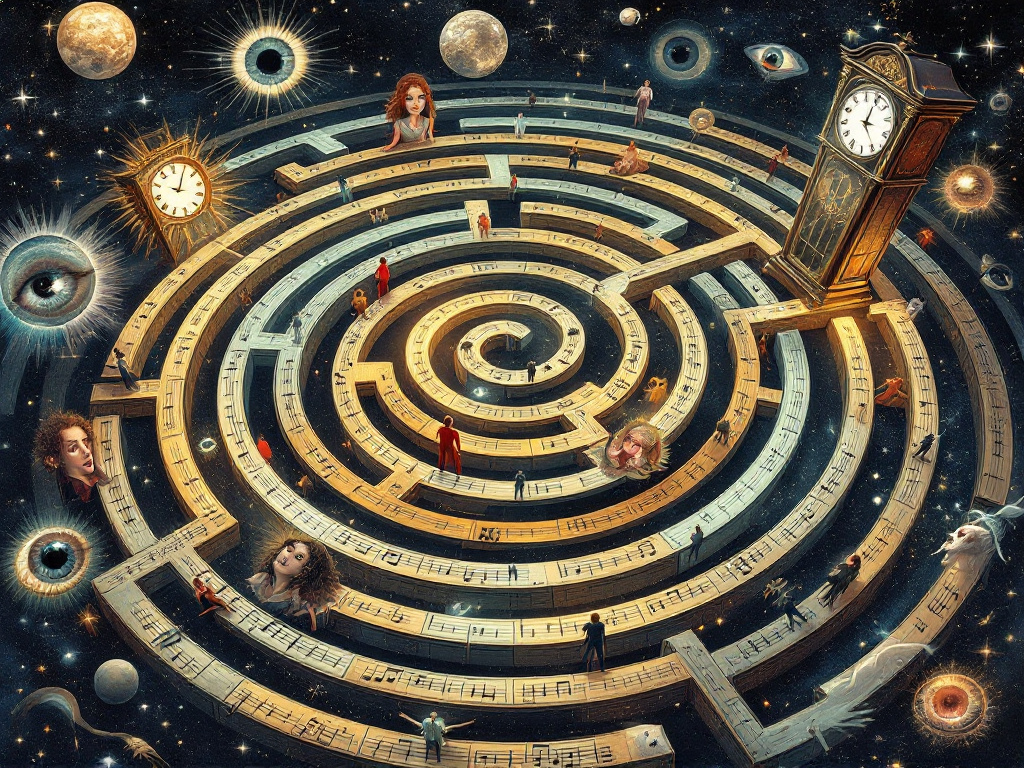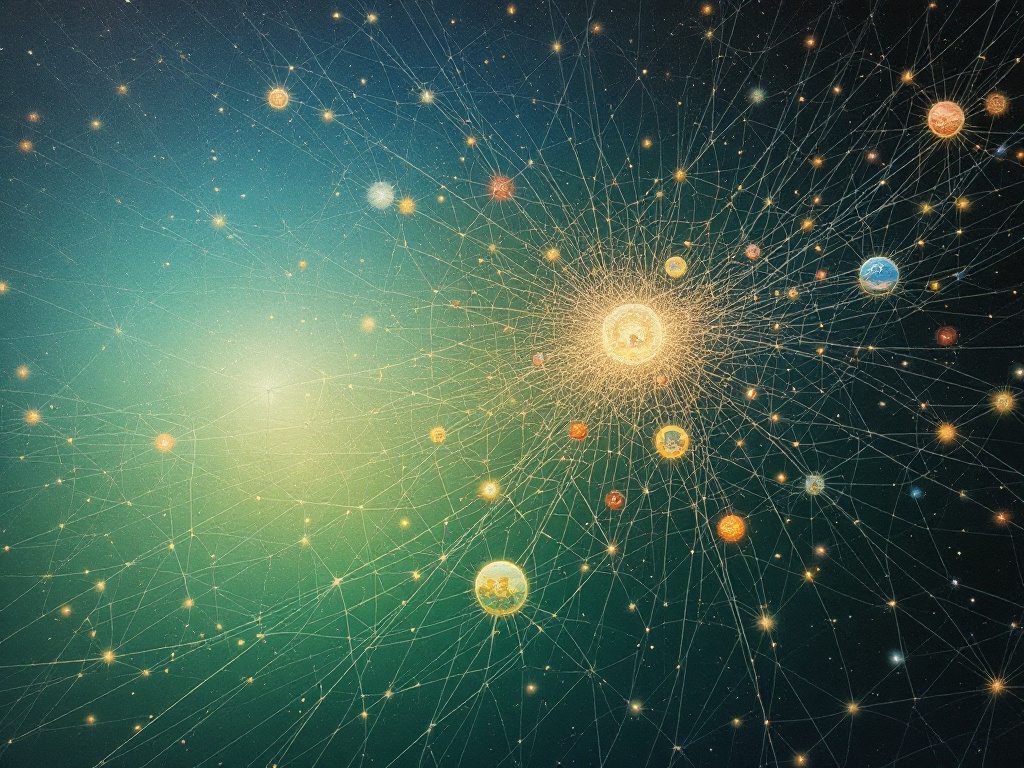The Man Mistook His Wife For a Hat: Letters to a brother

Letter 1: A Strange New Path
Dear Brother,
I must tell you of the path my work has taken. It seems my neurology is leading me not just through the familiar pathways of disease and diagnosis, but into a world of the extraordinary, of the unusual and perplexing. I’ve always been captivated by the subtle machinery of the brain, but lately, I’ve encountered cases which seem to defy all I’ve been taught, challenging the very foundations of my understanding. This is not just about finding the precise location of a lesion or the biochemical source of a malady; it’s about confronting what it truly means to be human in the face of profound change and loss. I find myself drawn to the particular, the individual experience, in a way that textbooks can’t account for. It’s a strange new path, and I find myself walking it with a mix of anticipation and apprehension.
Letter 2: The Man Who Mistook His Wife for a Hat
You wouldn’t believe, brother, the case I recently encountered. Imagine, if you will, a man, a gifted musician, so profoundly lost in a particular kind of visual disarray that he simply doesn’t see the world as the rest of us do. I’m speaking of Dr. P., a man of great intellect, who began mistaking objects, faces, the most everyday things, for something else altogether. A water hydrant became a child’s head, a carved knob on a piece of furniture became a person, and, in the most shocking episode, he reached out to put his wife’s head on, mistaking it for his hat! He could see, brother, but he could not perceive. It was as if his brain had become a sort of machine, able to process every detail but unable to grasp what those details truly mean. It’s as if he has lost the ‘concrete’ entirely, and can only see the world as an abstract scheme. This shook me profoundly. It raised doubts in me about how we classify deficits, and whether we are truly seeing what the patient is experiencing. It made me wonder at the limitations of our science, and, more generally, to see the limitations of that “objective”, mechanistic view of the mind.

Letter 3: The Lost Mariner
My heart ached this week, brother, with an entirely different sort of case, a man named Jimmie G., a charming man in every way, yet lost, it seems, in time. His memory is gone—almost entirely. He can speak of his childhood with perfect clarity, of his navy days, of his war service, but as soon as he moves past 1945 his memories dissolve into nothing. I showed him his reflection, a grey-haired man of nearly fifty, and he was terrified, convinced it was a trick. He does not know where he is, and can only live, it seems, in a perpetual present. What, I wonder, does it mean to be a person without a past? Without a sense of continuity? It is not just a matter of what is missing, though; it’s also about the way his intelligence, his wit, remains— isolated, untethered to time or personal history. It made me contemplate the very meaning of existence—what gives our lives coherence if not our past? It seems we must, as Nietzsche said, “become what we are”, but what is this when the self cannot even remember or recognize itself?
Letter 4: Disembodiment and Inner Worlds
Then came Christina, brother, and I must admit, I felt bewildered. She was a young woman, struck with a rare illness that made her lose the very sense of her body. She could see her hands, but she could not feel their position or their movement. To her, her body was not her own. She called herself ‘disembodied’, and it was truly shocking to observe. It was as if her limbs had become external things. Yet, through all of this, she was determined, resourceful, and with a sort of courage. She had, you see, lost all normal proprioception, that secret ‘sixth sense’ that allows us, always, to feel the position and state of our body, without having to think about it. Yet, she could substitute vision for it, could make her limbs and body her own through her eyes. What does all this mean? How important, how much a part of ourselves, are the senses that we do not even know that we have? It shows, at least, that a person can still live, still function, even when stripped of some essential part of their being. It’s as if the mind can create its own world, even when the body has, in some way, been lost.
Letter 5: The Spectrum of Excess
It’s not always about the missing pieces, brother. I’ve begun to see the mind as a site of excess as well as deficit; a place where things can grow out of control, as surely as they can break down. Take Witty Ticcy Ray, who is tormented, and energized, by a compulsion to move, to jerk, to tic, to make noises; or, indeed, to utter ‘tics’ of speech. It is a form of being ‘possessed’, a feeling of being overwhelmed by involuntary impulses. And yet he too is a man with a sense of humour, with a mind of great inventiveness, and he can, even, transform his tics, as a jazz drummer transforms every ‘error’, every ‘misplaced’ note, into something new and wonderful. It is no longer just the machinery that interests me, but the very energy, the very life, that animates that machinery.
Letter 6: The Illusory Self and the Search for Harmony
The cases have become more complex, brother; I see how many different ways the mind can be ‘altered’. Some of my patients, like the one I called ‘Mr. Thompson’, see the world as shifting sets of identities. He is, at one moment, the grocer, at another, he is a doctor, at another a friend. Is it a joke? Or is it a desperate attempt to build a world, a coherent self, to replace what is continually collapsing? And Mrs. B., poor Mrs. B, who had a tumour in her frontal lobes. She cannot make sense of people, things, categories, any longer, and sees everything as equivalent—a father, a sister, a doctor, all interchangeable, all meaningless. It reminds me of Jimmie G., in a way, whose sense of self seems tethered only to the memory of his past, whereas Mrs B has lost the ability to even comprehend categories. And what then of the ‘possessed’ patient, compelled to act, to mimic, to imitate, everyone around her? What I saw here was the dissolution of the personality, of self, of all sense of individual identity; and yet even here, even in this wildness and confusion, a sort of power could be glimpsed—the power to become, or not become, the power to be, or not to be. All of this—loss, transformation, excess—forces me, and us, to consider what is the human condition, what is a person, what is the self?

Letter 7: Transports and Transcendence
It seems to me now that I am beginning to travel into different terrains. I am increasingly drawn now to what I have begun to call ‘transports’— sudden irruptions of images, sensations, feelings, which seem to come from another time, another world. I think of Mrs. O’C, who, out of the blue, started to hear music—songs from her Irish childhood. Or Bhagawhandi, dying of a brain tumour, who was suddenly ‘taken back’ to the landscapes and memories of her native India. They had not chosen this music or these scenes; and they were not able to control them. Yet, they were transported by these experiences, out of the sickbed, the hospital room, into other worlds. They are not just sensory experiences but worlds imbued with personal significance, with a sense of meaning, a sense of place and identity. These are not simply pathological experiences, but are like doors to different dimensions. It seems, brother, that these transports are a part of us, of our inner lives, even if we cannot always access or control them. Are we, then, as I often ask myself, so very different from one another? Is not that strange landscape in our minds the very thing which joins us?
Letter 8: The World of the Simple
And then I turn to the children—not in chronological age, necessarily, but in spirit. It is they, too, whom I have begun to find most fascinating, most moving. You remember Rebecca, brother? She could not even see the shapes of letters, let alone read. She could not find her way around the block, and she could not put on her clothes properly; yet when she danced to music she moved with an extraordinary grace, and when she recited poetry she spoke with the voice of one who had tasted some profound and essential truth. And Martin, poor Martin, with his terrible deficits, his clumsiness, his ‘backwardness’, as it is called; yet this man, who had no ‘intelligence’, is ‘a walking Grove’, possessing all the music of Bach. Here, I am learning, is a whole other way of knowing the world, a way that is intuitive and immediate, a way that bypasses concepts and abstractions. And it is in this ‘concrete’ world, this world of the particular and the immediate, that meaning and beauty are to be found. I sense an elemental presence, a quality of being, which we have lost, in our pursuit of abstraction, and knowledge and thought.
Letter 9: A New Humility
What I’ve seen, brother, has shaken me to the core, and I see my science in a new light now. I have been forced to confront the limitations of my neurological lens, which shows me only deficits and disorders, and to recognize that there is something of far greater importance. I’ve come to understand that I, we, must look not just at the brain, as a machine, but at the person—at their stories, their experiences, their inner worlds. I have seen how the brain can both limit and liberate us, how it can distort and create realities, and how a mind can live and love and endure despite the most horrific of assaults. There is no simple solution, no ‘cure’ to many of these conditions, and our ‘treatments’, too, must be seen in this new and larger context. We must learn to see the individual in all their specificity; we must listen to their voices, and hear the stories they tell; and only then may we hope to heal. Perhaps it is this ‘romantic science’ which is our hope, to move beyond the dry, technical, scientific, and towards an understanding which has a space for the soul. There is so much I do not understand, but there is, I think, a new kind of seeing, a new kind of knowing, to be had: if only we allow it in. It is, I now see, a matter of both compassion and humility, and of wonder, a wonder, perhaps, at how the human condition remains, despite everything, so rich and so strange, and so full of possibility.
 Translate
Translate